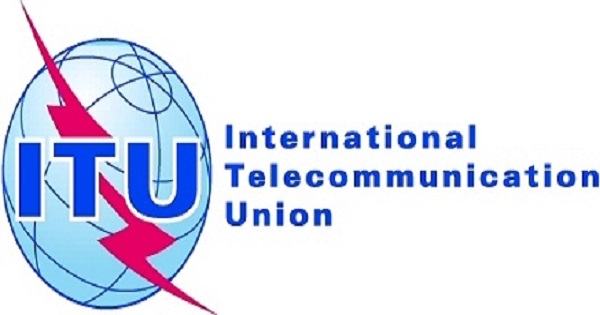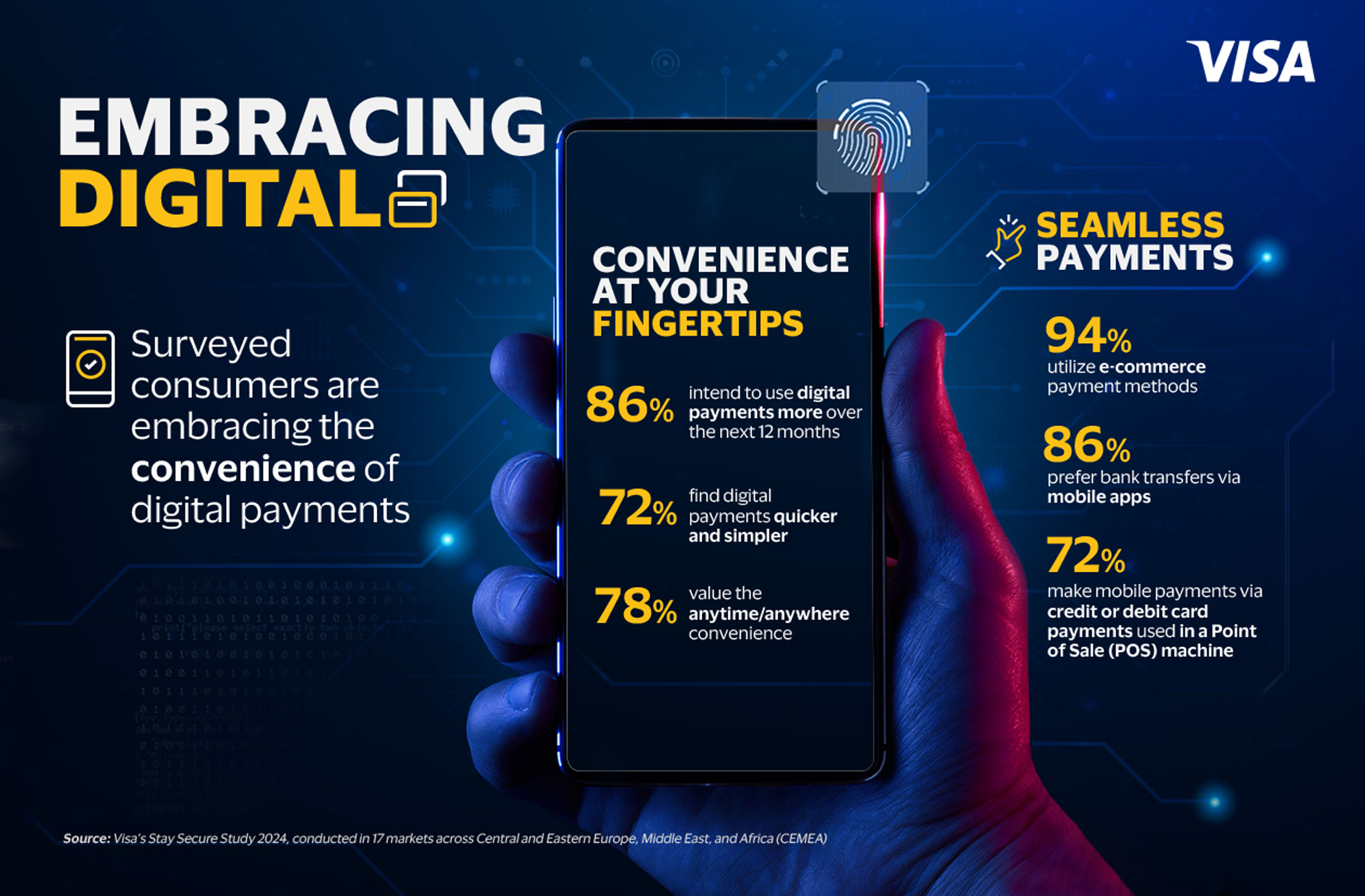Telecom
ITU Rolls Out Regulatory Guidelines for Digital Transformation

International Telecommunication Union (ITU) has released the 2020 Global ICT Regulatory Outlook, and rolled out regulatory guidelines for digital transformation.

The guidelines include the benchmark of Fifth Generation Collaborative Regulation, a new tool for policymakers and regulators to leverage digital transformation for all through stronger collaboration across sectors.
Speaking about the new regulatory guidelines, Mr. Houlin Zhao, secretary-general, ITU, said: “Collaboration across sectors proves increasingly successful in piloting regulators and policymakers towards broad and inclusive digital transformation. Indeed, digital technologies and services are transforming lives across society – from agriculture to smart water management systems, and ITU stands ready to support regulators and policymakers around the world. The ‘G5 Benchmark’ serves as a compass for regulators on their journey towards digital transformation for all.”
According to him, the benchmark of Fifth Generation Collaborative Regulation, also referred to as the ‘G5 Benchmark’, would help to fast-track collaboration among regulators and policymakers from the ICT sector and other sectors to drive digital transformation for all.
As the ICT landscape is complex and fast moving, the ‘G5 Benchmark’ offers metrics to assess gaps, proposes smart roadmaps through shifting regulatory landscapes, tracks progress and proposes solutions where concrete progress towards the Sustainable Development Goals has proved challenging, Zhao said.
He added that the concept of ‘regulation generations’ would help stakeholders to analyse the maturity of modern regulatory frameworks – from the command and control of first generation (G1) regulation, to a collaborative and harmonised approach in fifth generation (G5) regulation.
The 2020 Global ICT Regulatory Outlook benchmarks regulation across 193 countries worldwide and offers an objective perspective on the latest trends driving ICT policy and regulation. It also highlights six golden rules that accelerate the take-up of mobile broadband and seven rules that boost fixed broadband adoption.
ITU said its findings showed that 16 countries out of 193 now have collaborative regulatory frameworks in place to enable digital transformation for all.
“16 G5 countries now have holistic, forward-looking regulatory frameworks in place set to enable digital transformation across their economies.
“More than half of world’s population is concentrated in G2 and G3 countries, with potential to leapfrog to near universal digital inclusion. Meanwhile, a quarter of countries remain in the G3 category, making progress on stronger policy and regulation, but are unable to unlock the full potential of ICT markets,” Zhao added.
According to him, in just one decade, G4 became the established standard for every ICT regulator, with more than 50 countries in this category. However, 40 per cent of countries languish in G1 or G2 categories, missing development opportunities and increasingly adrift from global digitisation and economic transformation.
Doreen Bogdan-Martin, director of ITU Telecommunication Development Bureau, said: “The Global ICT Regulatory Outlook 2020 is as a rich, powerful and practical tool to all of us seeking to build a world of meaningful connectivity through regulation that is open across sectors, and above all, collaborative.
“It lays out clearly the trends, the challenges and the opportunities before the regulatory community in 2020 and continues to set out the decades-long ICT regulation story as our industry develops and responds to major world crises like the 2008 financial crash and COVID-19.”
Comparing the Global ICT Regulatory Outlook 2020 with regional regulations, Zhao said regulatory frameworks in Africa have evolved the most over the past ten years.
According to him, as of 2018, only two African nations remained in the G1 category.
“Africa’s score has kept pace with the rise in world averages, and has exceeded averages of the Arab States, and Asia-Pacific.
In the Americas, over a third of countries have now achieved the highest G4 and G5 generations of regulation.
“Between 2007 and 2018, the region increased its average score more than all other regions, with thirteen countries now having attained G4 status.
Telecom
Open Access Fabrics Set to Drive Connectivity to Achieve a Digital Economy

Ayotunde Coker, chief executive officer of OpenAccess Data Centre has described Open Access fabric, the company’s Africa-led interconnection platform as key driver of a digital economy, offering a range of virtual connectivity services from Open Access Data Centres (OADC) facilities.

Empowered by West Indian Ocean Cable Company (WIOCC), extensive digital backbone, OAfabric offers enterprises and service providers access to diverse digital ecosystems, supporting user-to-service, user-to-user and site-to-site connectivity.
Coker stated this during a tour of Open Access Data Centre facility in Lagos by some journalists recently.
According to him, “designed as a future-ready foundation, OAfabric unites cloud and local connectivity with OADC’s market-leading colocation solutions, establishing an innovative, scalable African infrastructure platform that addresses both local and global digital transformation demands.
“OA fabric offers a reliable, adaptable interconnection platform to support Africa’s growing digital needs and hybrid infrastructures for local and global providers
“Enabling secure, direct cloud connections, OA fabric supports data sovereignty and fosters local provider growth, OA fabric provides IX peering, virtual interconnection, and tailored IP services for Africa’s digital landscape.
“It’s not about a particular service provider, it’s about everybody. Once you have a network and you are able to route traffic, even if you are not live yet, and you are hoping to come in the future, we are waiting for you to come on board. So, that platform converges everybody.
“With Open Access fabric, everyone is expected to interconnect. You are collaborating with the government. You are collaborating with the banks. We are collaborating with all these guys to interconnect everyone, Microsoft, Google, all the cloud companies connect into it, because we already have the connectivity business”.
He noted that, “Through OA fabric, all the other connectivity providers have access to any content on OA fabric, so SMB, SMEs, MSMEs, who probably doesn’t have a registered business, but on social media, selling clothes and things like that, can have cost effective access to resources on the internet.
Speaking on Metro fiber project which OADC is partnering with WBT, Coker explained that they have covered over 5 million homes in Lagos. “The job of the Internet Service Provider or MNO in the project is to maintain relationship with the residents of that area, make sure that the infrastructure is secured”.
Telecom
MTN Nigeria and Pan-Atlantic University Invite Media Practitioners for 4th Media Innovation Programme

MTN Nigeria Communications Plc and the School of Media and Communication, Pan-Atlantic University, have announced a call for applications from qualified media practitioners (including content creators) to participate in the 4th edition of the MTN Media Innovation Programme (MTN MIP-4).

The programme commences on May 19, 2025, on the Main Campus of the Pan-Atlantic University, Ibeju-Lekki, Lagos.
In collaboration with the School of Media and Communication, Pan-Atlantic University, MTN Nigeria launched MIP in 2022 to enable media practitioners gain deeper insight into the ever-evolving media landscape.
The six-month fully funded certificate fellowship, which includes a study visit to the University of Johannesburg, South Africa is open to media practitioners across all strata of the media industry including print, electronic and online platforms. The programme is also open to social media content creators.
“When we launched MIP in 2022, our goal was to enhance media professionals’ reporting capabilities and deepen their understanding of the technology sector, empowering them to become true media innovators. Seeing the impact of the programme over the past three years has been both inspiring and humbling.
“We are proud to continue this initiative and invite all eligible media professionals and content creators to seize this opportunity by applying for the fourth cohort,” said Tobe Okigbo, Chief Corporate Services & Sustainability Officer, MTN Nigeria.
Speaking on the impact of the programme, the Dean, School of Media and Communication (SMC), Pan-Atlantic University, Dr Ikechukwu Obiaya, said that the programme continues to improve and evolve.
“Given the challenges of today’s fast-changing media space, there is an ever-greater urgency to cultivate a new generation of media professionals who will drive innovation and excellence to meet today’s media needs.
“SMC will leverage its extensive experience in training media professionals to equip this next cohort. And we will do this with our usual emphasis on creativity and ethics.”
At the end of the training, the 20 successful applicants, who will qualify as Fellows, will have been trained on Nigeria’s technology sector, the relationship between media and technology and improved content creation opportunities. They will also be equipped with the skills to adapt to the changing realities that guarantee career and financial success in their professional practice. Fellows will also have access to professional resources and mentorship from PAU’s erudite faculty.
Interested journalists, bloggers and content creators can apply at https://bit.ly/MTN_MIP2025
Applications open on Monday, March 24 and close on Monday, April 7, 2025.
Telecom
Visa Study Highlights Increased Security Awareness as Digital Payments Thrive Across CEMEA

A new study commissioned by Visa reveals a rise in consumer awareness and proactive security measures for digital payments across Central and Eastern Europe, the Middle East, and Africa (CEMEA).

The ninth annual Stay Secure study, which surveyed 5,800 adults across 17 diverse CEMEA markets, found that 98% of consumers now actively take precautions to secure their online transactions, showcasing increased savviness as digital payments gain momentum.
While 64% of respondents in Nigeria acknowledge their vulnerability to scams like phishing, the increased adoption of security measures and preference for stronger authentication indicate a positive shift in consumer behavior since the last edition of the Stay Secure study in 2023. Consumers are now actively spotting red flags and verifying the legitimacy of online interactions, showing a marked increase in awareness.
Other key insights emerging from the research bode well for the continued acceleration of digital payments across the region, with over three-quarters of all respondents stating that they mostly or completely trust digital payments, regardless of the threat of fraud. 86% of consumers across Nigeria anticipate that they will increase their use of digital payments over the next year.
“The digital payments landscape is evolving rapidly, and consumers across Nigeria are embracing its convenience while becoming more vigilant about security,” said Andrew Uaboi, Vice President & Head, Visa West Africa.
“Consumer education is our best defense against fraud, and industry collaboration makes this possible. As scams grow more sophisticated, the battle for security never stops. Consumers increasingly trust partners who take tangible steps to protect them.”
The ‘Stay Secure’ study highlights evolving consumer preferences, which could offer Visa’s stakeholders actionable intelligence for trust-building strategies and inform the creation of educational materials to empower consumers against fraud.”
Key Findings of the Visa Stay Secure Study:
– 94% surveyed in Nigeria utilize e-commerce payment methods.
– 82% surveyed in Nigeria are more likely to trust payment programs run by the government (e.g., instant payments, local cards, etc.) if they partnered with a well-known brand like Visa.
-51% surveyed in Nigeria feel more secure using digital payments.
-56% surveyed in Nigeria leverage online credit or debit card payments.
– 54% surveyed in Nigeria note that news about cyber fraud (e.g., data breaches, email scams, phishing, etc.) has impacted their use of digital payments.
– 43% rank Boomers (60-78) as most likely to fall victim to online scams.
Visa’s Commitment to a Secure Digital Future
Visa has been at the centre of AI in payments, investing $3.3 billion in our AI and data infrastructure over the last decade. In 2024, it introduced three new AI-powered risk and fraud prevention solutions, as part of the Visa Protect suite, that are designed to help reduce fraud across immediate A2A and card-not-present (CNP) payments, as well as transactions on and off Visa’s network.
As the world’s largest SaaS platform, Visa combats cybercrime by deploying cutting-edge tools, expertise, and processes to help identify and mitigate fraud. The impact is undeniable: In the past year, Visa blocked $40 billion in fraudulent payment value, prevented 80 million fraudulent transactions, and averted over $122 million in estimated e-commerce fraud through malware detection.

 General News3 days ago
General News3 days agoNigeria to Launch $40 Million Fund for Tech Startups

 Broadcasting1 day ago
Broadcasting1 day agoNGO Blasts MultiChoice for Tariff Hike in Nigeria, Slash in South Africa

 E-Business1 day ago
E-Business1 day agoOtti, Abia State Gov Promises Internet Access for all Abia Communities in 9 Months

 News1 day ago
News1 day agoNIPOST Explains Clamping Down on Illegal Logistics Services in Enugu

 Telecom1 day ago
Telecom1 day agoTelcos Mull Introduction of Different Tariff Plans for Different States

 E-Financial1 day ago
E-Financial1 day agoCITN Seeks AI to Curb Revenue Leakage in Nigeria’s Tax System

 News1 day ago
News1 day agoNESREA Urges Nigerians to Dispose Batteries Properly to Avoid Hazards

 News1 day ago
News1 day agoTony Elumelu Foundation Grants $15m to 3,000 African Entrepreneurs
























